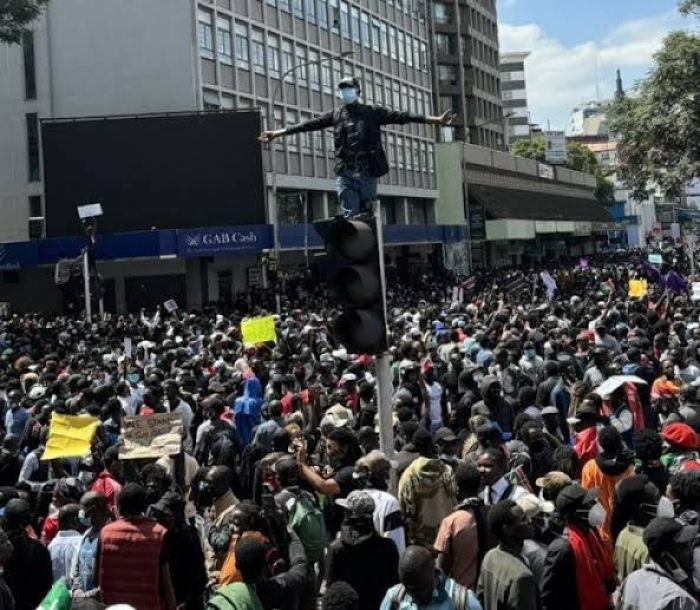The scenes unfolding in Kenya, where protests over proposed tax hikes have escalated into a full-blown political crisis, should serve as a stark warning to other African nations. The Kenyan government's attempt to increase taxes amid rising economic hardship and persistent corruption has triggered widespread unrest, leading to violent clashes, multiple deaths, and a call for President William Ruto's resignation. This situation offers a poignant lesson for Nigeria, where the Bola Tinubu administration is pursuing economic policies that could similarly ignite public outrage.
Kenya’s turmoil began with an online outpouring of anger against tax increases on essential goods. What started as digital dissent rapidly evolved into a nationwide protest movement, culminating in violent confrontations that claimed at least 23 lives. Despite President Ruto's decision to withdraw the contentious finance bill, the protesters remain undeterred, demanding broader political reforms and his resignation. The protests highlight the deep-seated frustration of Kenyans with their government’s economic mismanagement and corruption.
Nigeria finds itself on a similar precipice. The Tinubu administration’s adherence to economic directives from Bretton Woods institutions, despite the severe hardship faced by the populace, mirrors Kenya’s missteps. Recent reports of the Nigerian government’s plan to purchase two new luxury jets for the president and vice president have exacerbated public discontent. Such expenditures are perceived as a stark contrast to the austerity measures and economic sacrifices demanded of ordinary Nigerians.
The situation in Kenya underscores the potential consequences of ignoring public sentiment and pursuing policies that disproportionately affect the impoverished majority. President Ruto’s climbdown on the tax hikes was a significant victory for the protestors, but the damage to his administration’s credibility may be irreparable. The Kenyan crisis illustrates that governments cannot disregard the socioeconomic realities of their citizens without risking widespread unrest and instability.
For Nigeria, the message is clear: the implementation of economic policies must be balanced with empathy and responsiveness to the people’s needs. The Tinubu administration’s focus on securing external financing and reducing deficits should not overshadow the imperative to alleviate domestic suffering. Extravagant government expenditures, such as the planned luxury jets, are not only insensitive but also fuel the perception of a detached and indifferent leadership.
Moreover, the Nigerian government must be cautious of underestimating the power of social media and youth-led movements. Kenya’s protests were largely organized online, demonstrating the effectiveness of digital platforms in mobilizing and unifying disparate groups around a common cause. As Nigeria continues to grapple with economic challenges, the government would do well to heed the voices of its young, tech-savvy population.
The events in Kenya should serve as a cautionary tale for Nigeria and other African nations. It's time for leaders to recognize that the patience of their people is not inexhaustible. The choice is clear: address the root causes of economic hardship and corruption, or face the wrath of a populace that has reached its breaking point.

































































